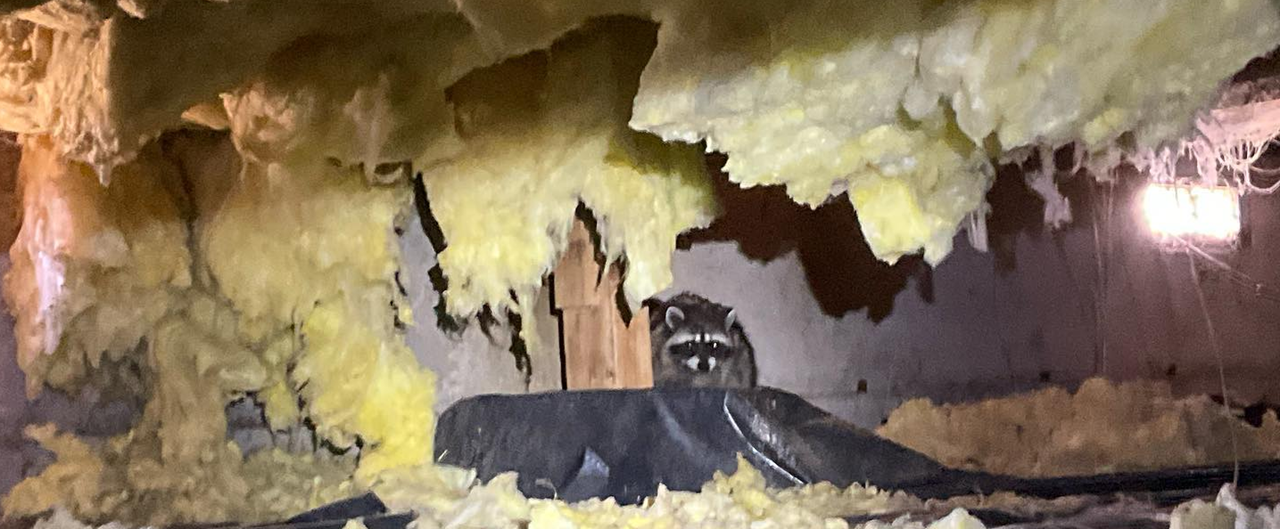
If you see a raccoon during the day on your property, it could be cause for alarm. Because raccoons are nocturnal, a raccoon active during the day might indicate rabies. But a female raccoon will be active during the day if she has babies to feed.
Need Help with Raccoon Infestation?
Find a Critter Control near you.
When do raccoons have babies?
Generally born in late spring, when raccoons have babies depending on the part of the country. Raccoons in Chicago and Detroit typically give birth as late as June. Homeowners in Houston will find baby raccoons in March and April.
Raccoons have one liter a year of two to five kits. Young raccoons are at high risk of starvation because they have little time to build up fat reserves before winter. Babies rely on their mothers to find safe shelters, and female raccoons frequently choose chimneys as denning sites. This leads to obvious conflict with humans.
How many babies do raccoons have?
Most litters of raccoons contain two to five offspring, known as kits.
What does a baby raccoon look like?
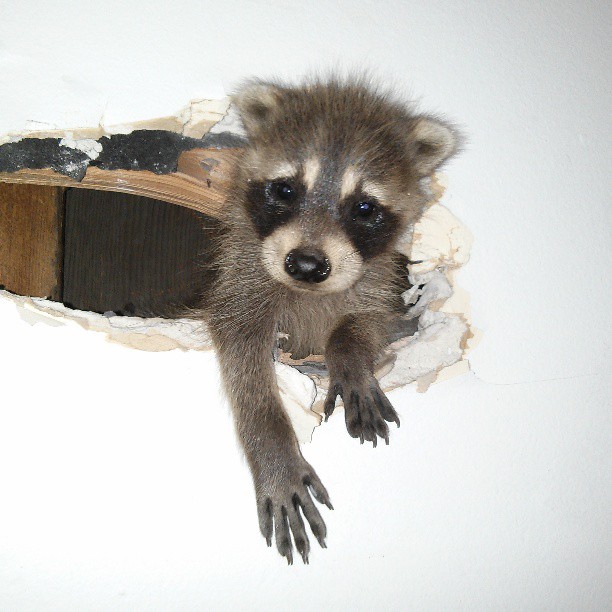
Baby raccoons look very similar to adults, the only difference being their size. Newborns do not open their eyes until their third week of life, so they are dependent on their mothers. Even after baby raccoons have grown large enough to run, climb, and forage for food on their own, they stay with their mothers for about a year.
Why do baby raccoons cry?
Like most mammals, baby raccoons cry when they’re hungry. If you hear cries from the attic during the day, it’s a good sign there’s a raccoon family living in your house.
Are baby raccoons friendly?
Even though baby raccoons look cute and cuddly, they will still bite and scratch. Raccoons are not born with rabies, but instead exposed to the disease at birth by the mother as she grooms the newborn.
If you find a baby raccoon, avoiding handling it. Keep the animal safe and secure as close to where you found it. If the mother hasn’t returned during the night, find a local wildlife rehabilitator. Do not feed the raccoon milk!
What do I do if a raccoon family is in my attic?
Given any indication that a raccoon family is nesting on the premises, property owners should contact professional wildlife removal services such as Critter Control. Attempting to forcibly remove families of raccoons may lead to injury or the transmission of disease. Mother raccoons will fiercly defend her young. Contacting technicians trained in the humane removal of problematic raccoons keeps all involved people and animals safe.
Raccoon Baby Pictures
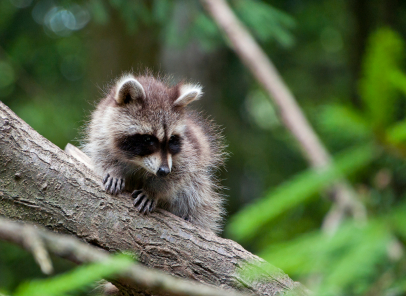
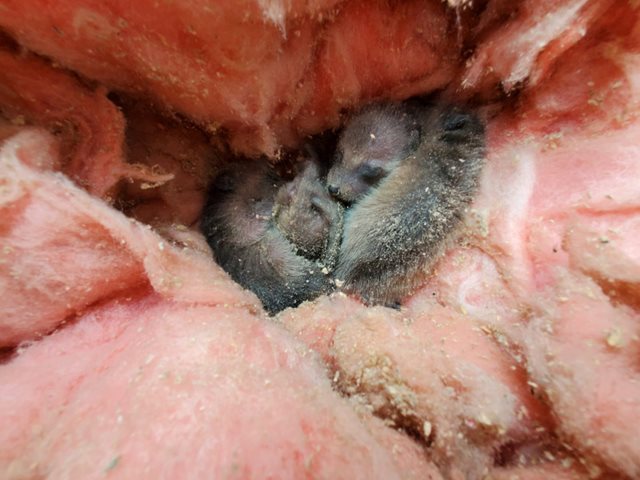
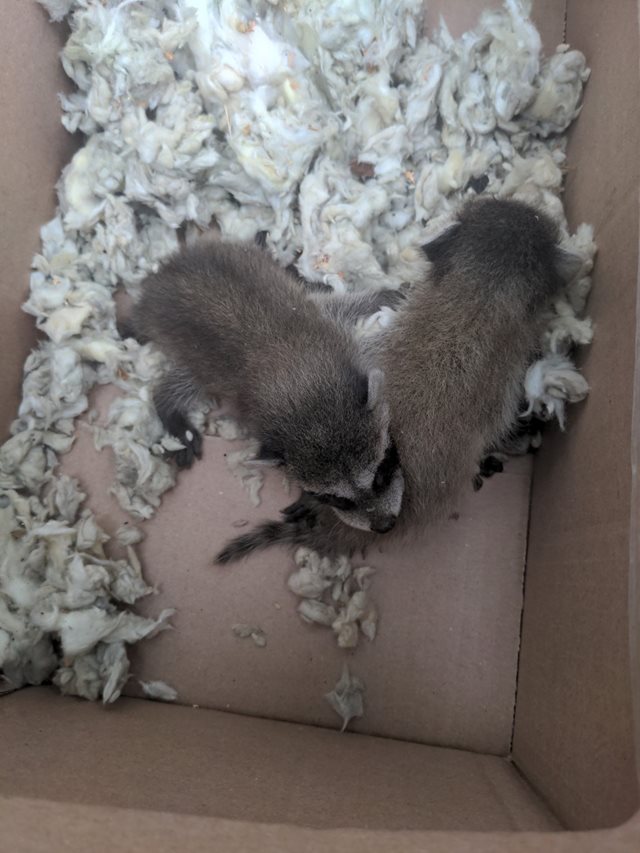
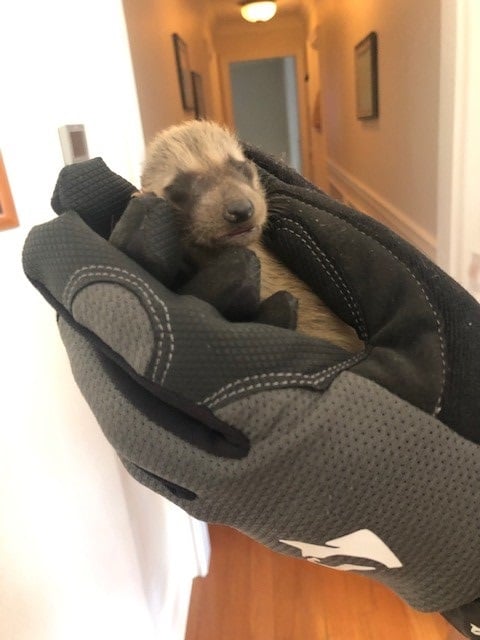
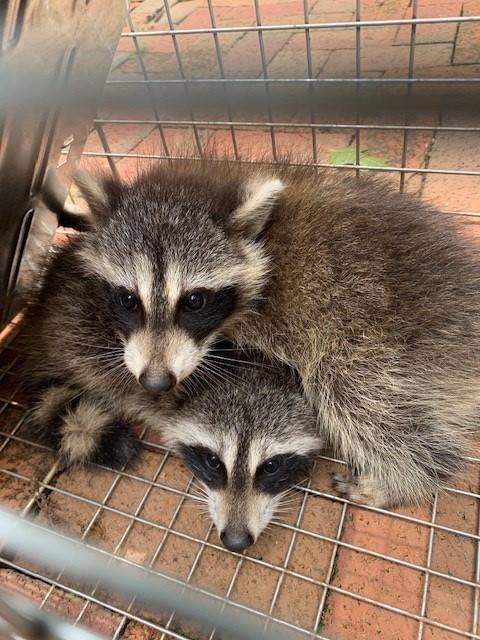
Get them out.
Keep them out.®
Experiencing a wildlife or pest issue? We can help! Complete this form and your local Critter Control® office will contact you to assist.
- How to Get Rid of Raccoons
- Are Raccoons Dangerous?
- Raccoon Trapping Service
- Raccoon Control
- Dead Raccoon Removal
- Raccoon Diseases
- Do Raccoons Hibernate in Winter?
- Raccoon Damage
- Raccoon Diet
- Raccoon Poop
- Raccoons In Yards
- Raccoons in Basements
- Raccoons in Chimneys
- Raccoons in Crawl Spaces
- Raccoons in Houses
- Raccoons in Trash
- Raccoons in Trees
- Raccoons in Walls
- Raccoons on Roofs & in Soffits
- Raccoon Sounds
- Raccoon Tracks
- Raccoons in Attics & Ceilings
- What Does a Raccoon Look Like?